Abstract
Coagulase-negative Staphylococcus albus was considered to be the causal agent in 53 (4.4%) of 1200 wound infections investigated in a large general hospital over the eight-year period 1957-1964. There was clinical evidence of morbidity in these patients, with fever, but the infection cleared spontaneously, usually in a week or two, and antibiotics were unnecessary.
Of much greater importance was the finding of this organism in blood cultures on repeated occasions, with associated clinical septicemia. Twelve patients were so affected, of whom six died, a mortality rate of 50%. Such data emphasize the tragic mistake of dismissing the report of Staph. albus in a blood culture as “only a contaminant”, and of failure to recognize that the organism can cause serious disease. This is particularly true in poor-risk patients, and in those who have undergone cardiac surgery.
Full text
PDF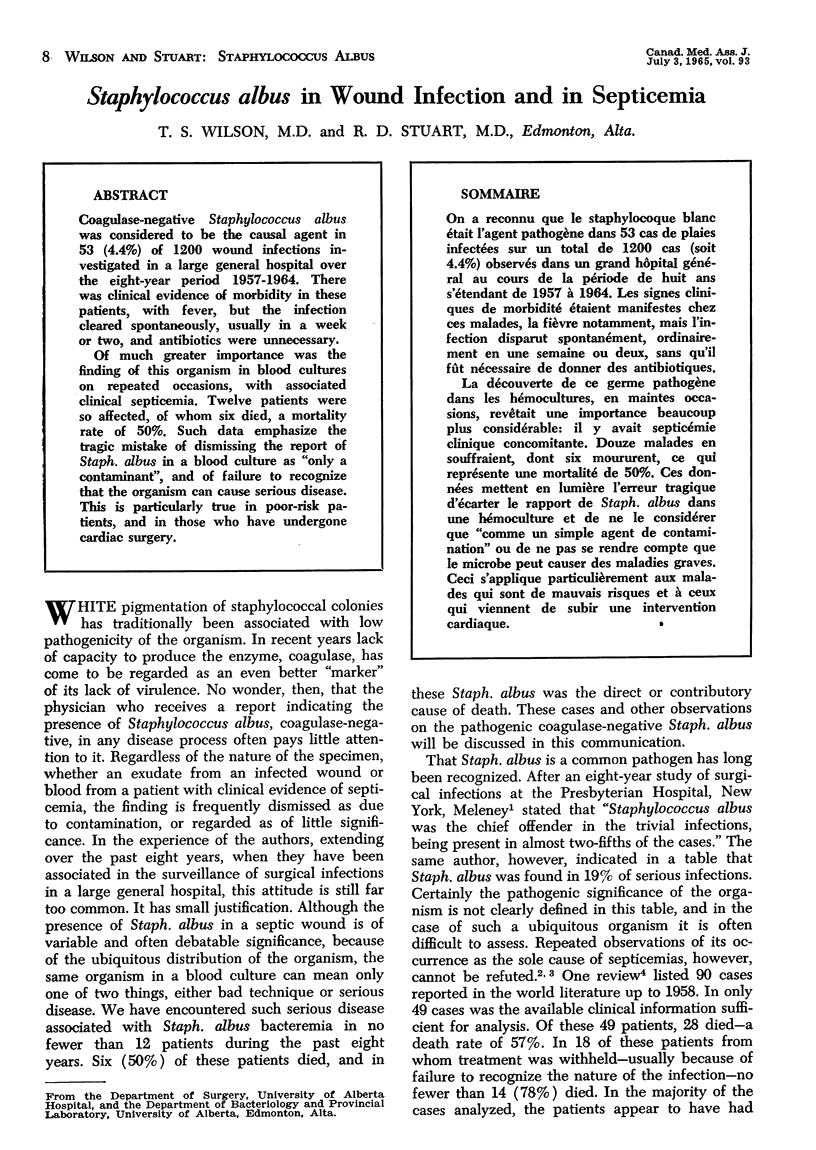
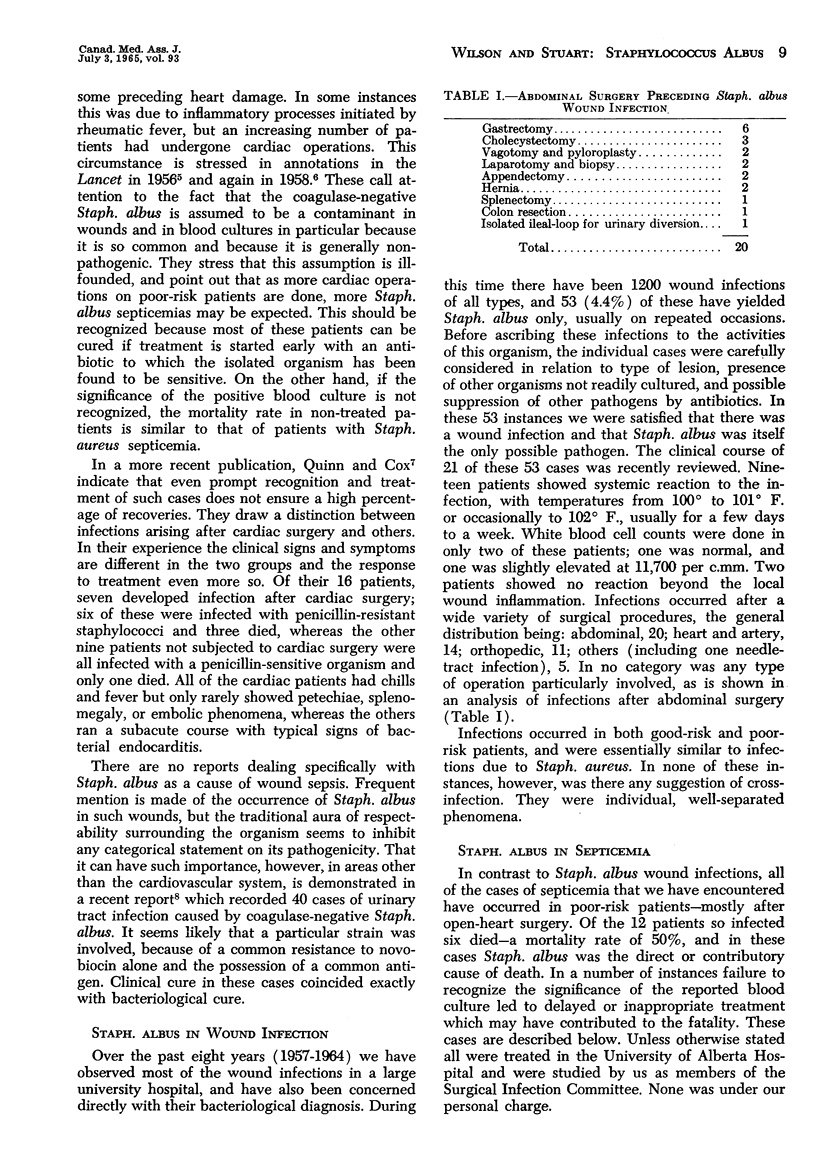
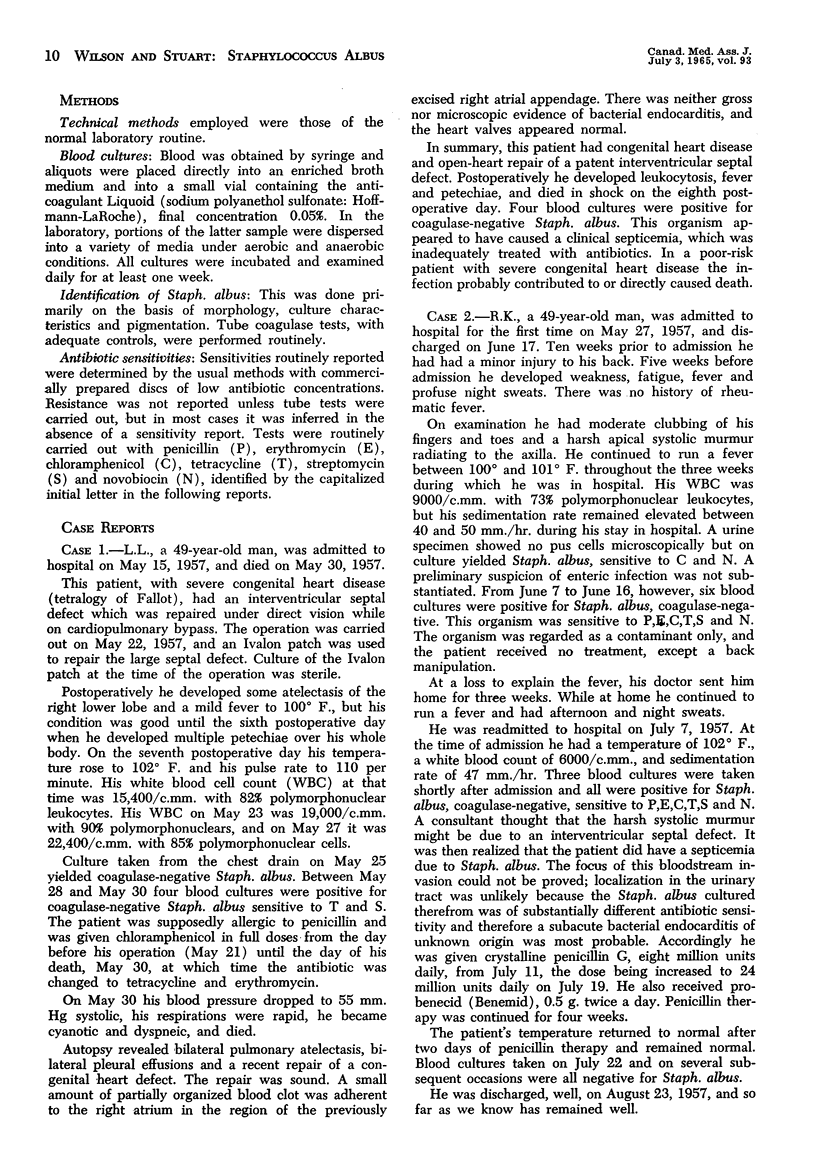
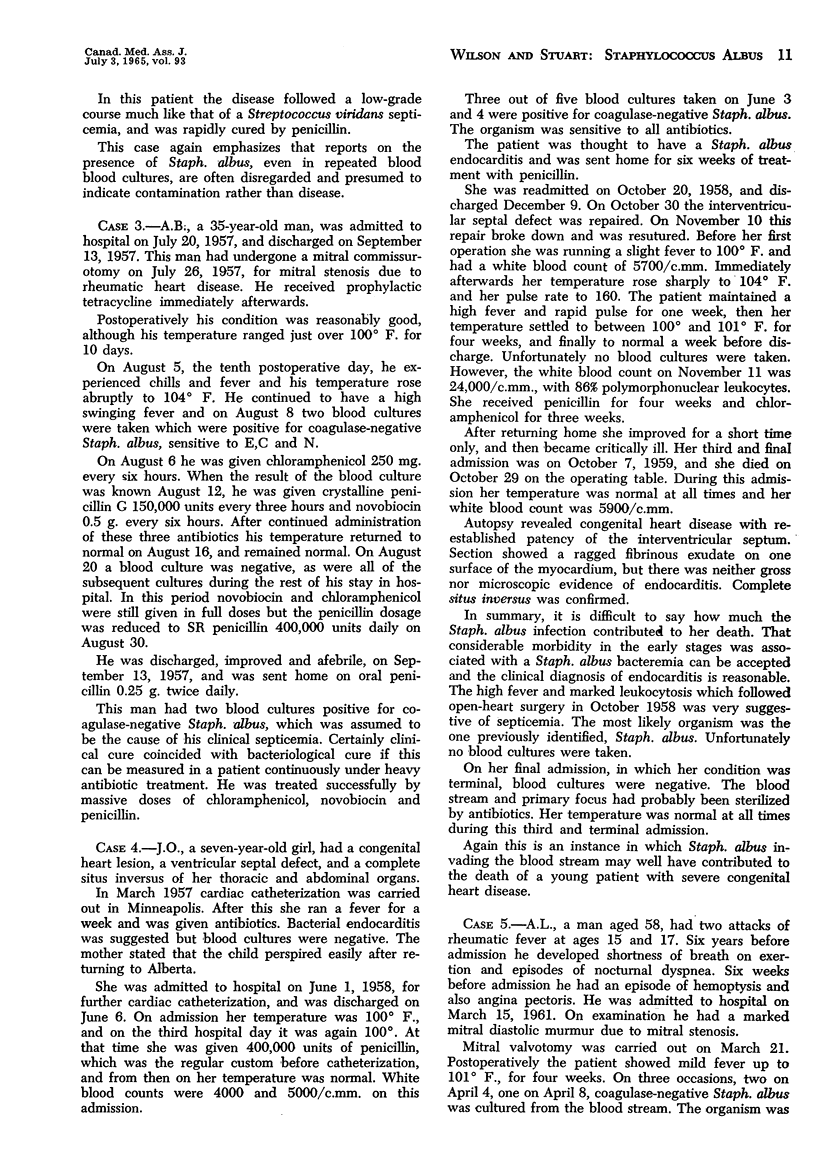
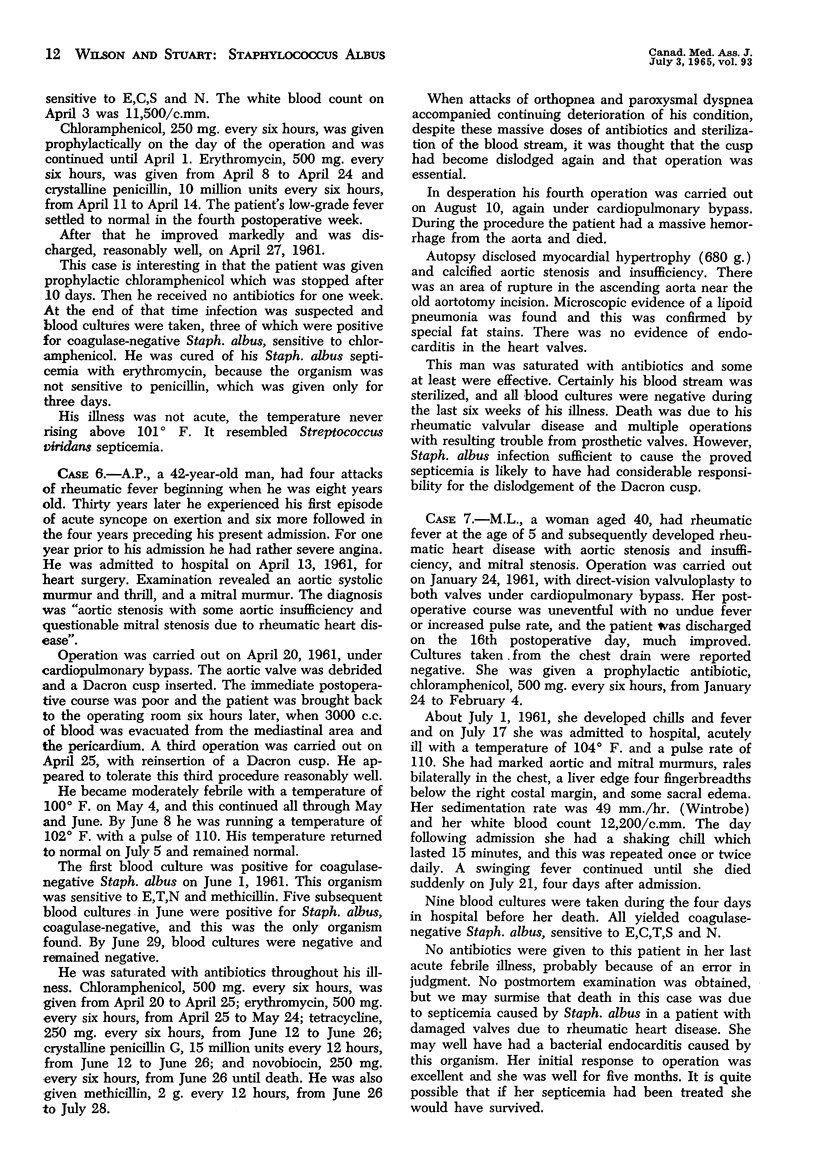
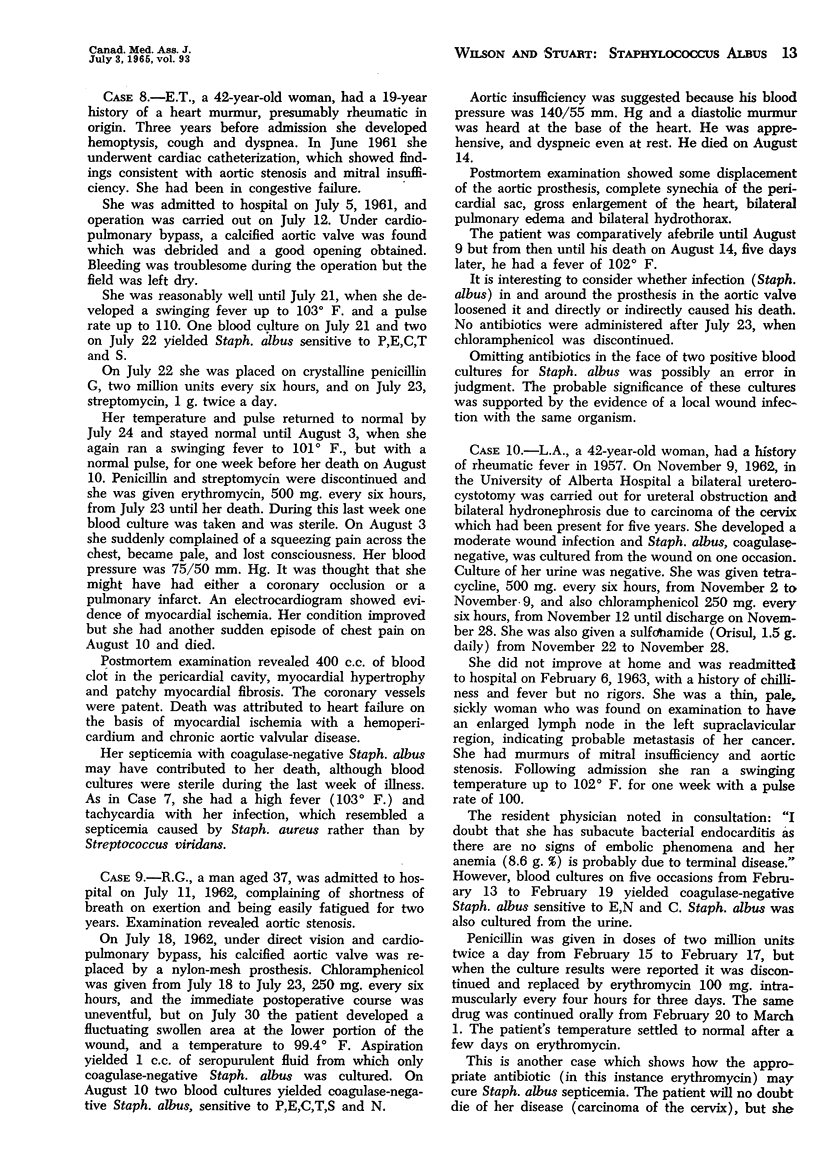
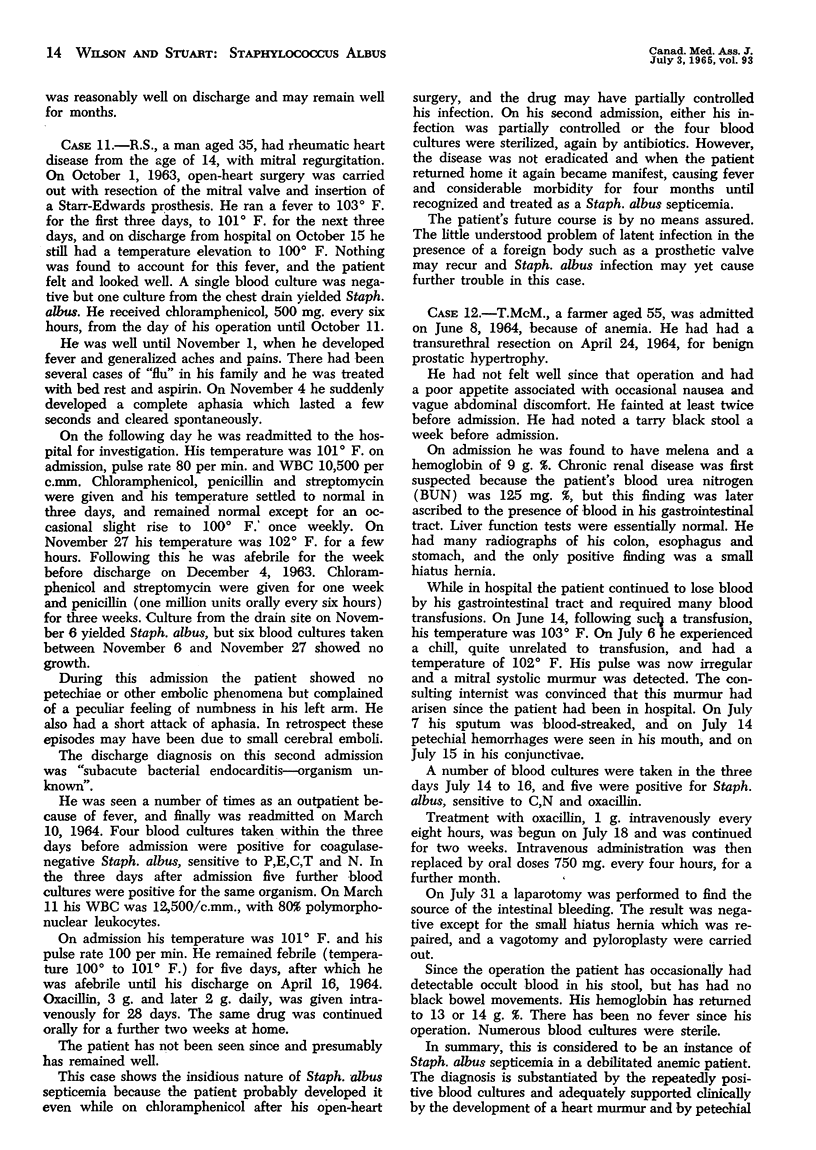
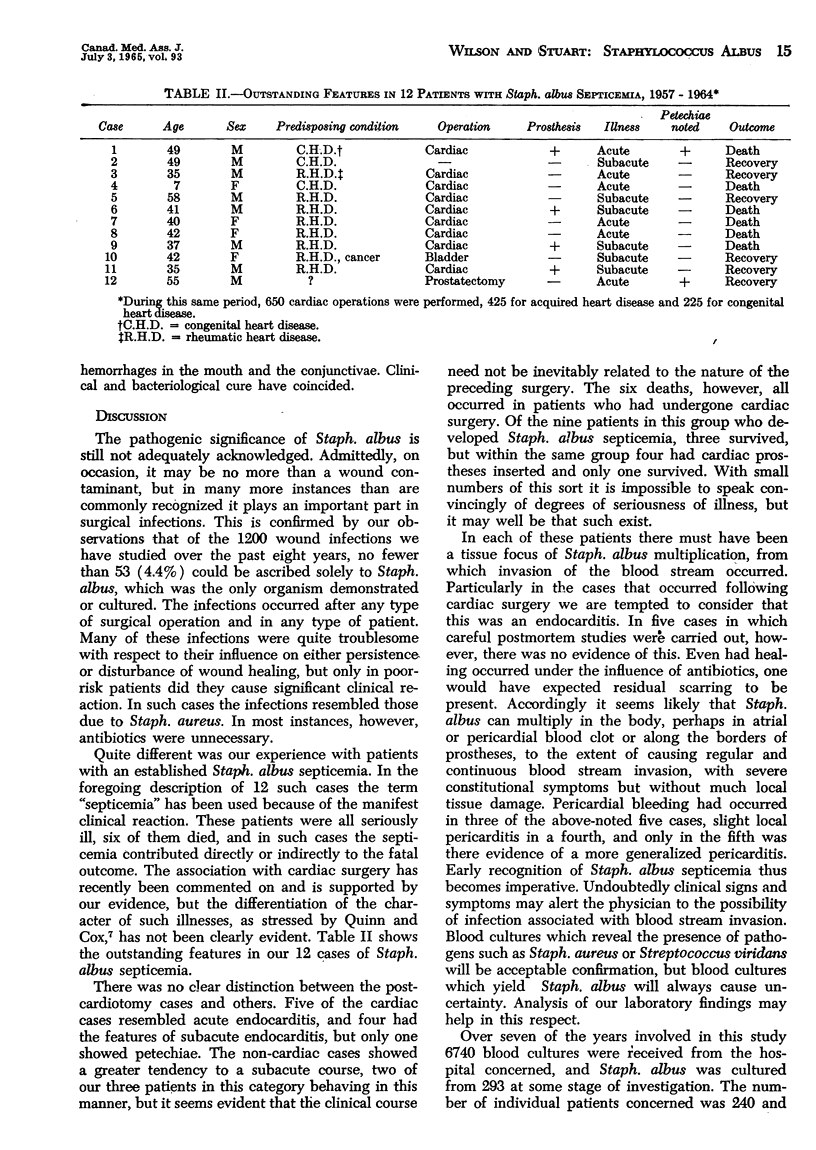
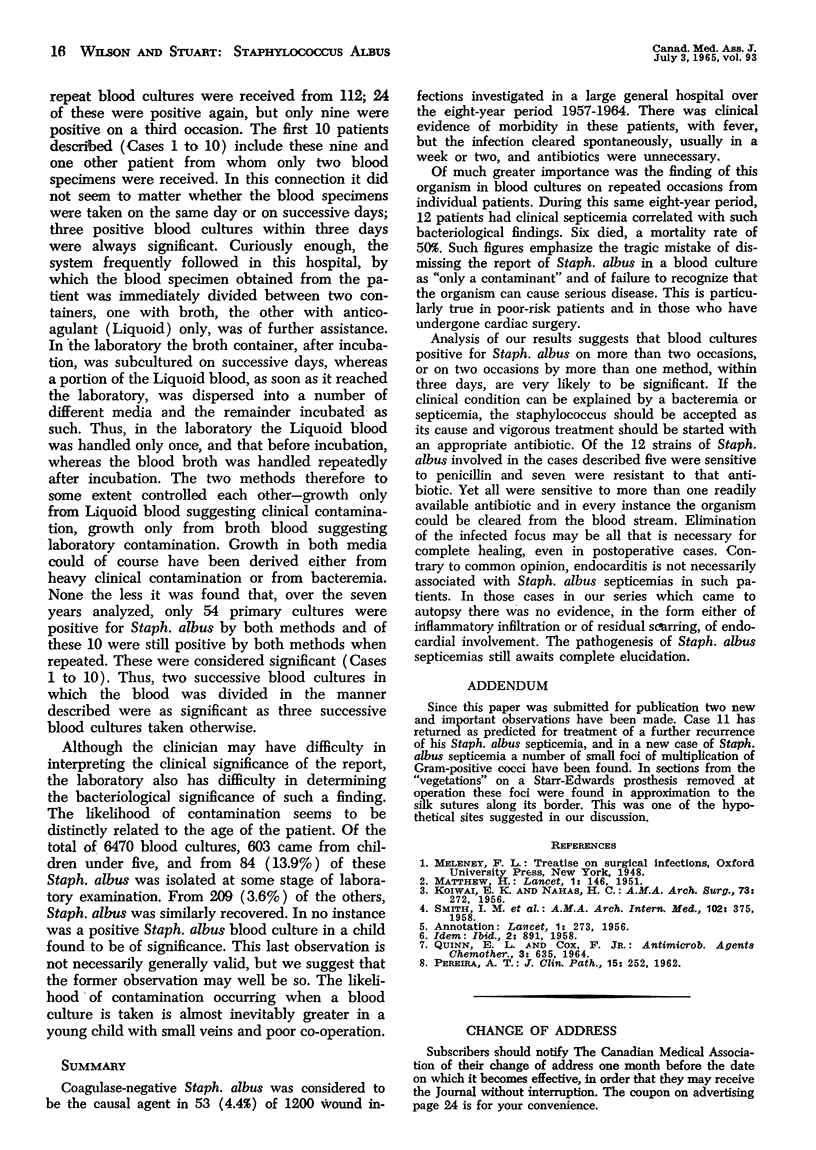
Selected References
These references are in PubMed. This may not be the complete list of references from this article.
- KOIWAI E. K., NAHAS H. C. Subacute bacterial endocarditis following cardiac surgery. AMA Arch Surg. 1956 Aug;73(2):272–278. doi: 10.1001/archsurg.1956.01280020086017. [DOI] [PubMed] [Google Scholar]
- MATTHEW H. Subacute bacterial endocarditis caused by coagulase-negative Staphylococcus albus. Lancet. 1951 Jan 20;1(6647):146–148. doi: 10.1016/s0140-6736(51)91218-4. [DOI] [PubMed] [Google Scholar]


